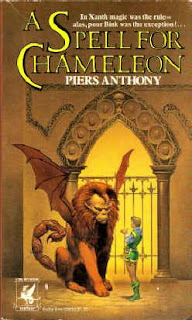Amusing story about journal refereeing: serendipity edition
Back in October, a cool journal asked me to review one of their submissions. Of course, I said! But this was back when I was getting swamped with my five classes, and anticipated having to design a new online Film & Literature course that I eventually ended up not getting. Plus, I would have had to order and read the two novels discussed by the submission. Thus I pre-emptively ordered the two novels ... but mentioned that I might need until December to complete the review. Although I normally complete academic work like this quickly, my work schedule and my "how quickly can I read this books?" had me sppooked. Anyway, that December date was only a three-month turnaround, which is normally pretty acceptable for academic journals, but a few days later my contact told me that the journal was hoping for a quicker turnaround, so they offered the review to someone else. No problem, I replied .... despite ordering two (now) unnecessary novels, I highly applaud journals who striv



